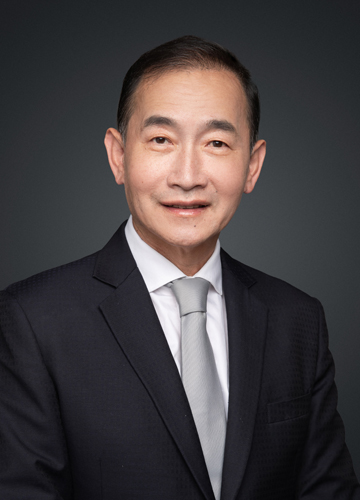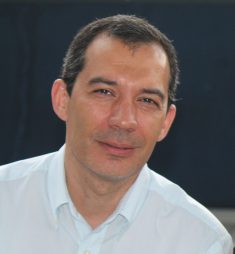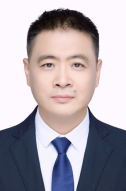Keynote Speakers
Here are some of our keynote speakers

Xuemin Lin
Title : The Rise of Graph Computation
ABSTRACT: Graph data are key parts of Big Data and widely used for modelling complex structured data
with a broad spectrum of applications. Over the last decades, tremendous research efforts have been devoted to many fundamental problems
in managing and analysing graph data. In this talk, I will focus on the three key problems, 1) efficiently computing subgraph mappings
over large-scale graphs, 2) mining cohesive subgraphs, and 3) determining the resilience of graphs.
I will cover applications and recent advantages.
BIO:
Xuemin Lin is a Chair Professor at Shanghai Jiaotong University, and the head of department of data and business intelligence.
Xuemin is a fellow of IEEE and AAIA. He is also a foreign member of Academia of Europaea.
Xuemin's research interests lie in databases, data mining, algorithms, and complexities.
Specifically, he is working in the areas of scalable processing and mining of large scale data, including graph, spatial-temporal, streaming,
text and uncertain data. Xuemin was the editor-in-Chief of IEEE Transactions on Knowledge and Data Engineering (Jan 2017 - now).
He was an associate editor of ACM Transactions Database Systems (2008-2014) and
IEEE Transactions on Knowledge and Data Engineering (Feb 2013- Jan 2015), and an associate editor-in-Chief of IEEE Transactions on
Knowledge and Data Engineering (2015-2016), respectively.
He has been regularly serving as a PC member and area chairs/SPC in SIGMOD, VLDB, ICDE, ICDM, KDD, CIKM, and EDBT.
He is a PC co-chair of ICDE2019 and VLDB2022.

Nabil Abdennadher
Title : Towards a distributed Continuum Computing platform for ML Based Self Adaptive IoT Applications
ABSTRACT: The proliferation of sensing device technologies,
and the growing demand for data-intensive IoT applications,
are paving the way to the next wave of transformation in IoT computing systems architecture.
The goal today is to design, implement and deploy a seamless interconnection of IoT,
edge and cloud resources in one computing system, to form a compute continuum,
also referred to as edge-to-cloud or fog-to-cloud.
In this talk, compute continuum refers to the deployment and execution of self-adaptive machine learning-based applications employing IoT sensors.
Because of their distributed nature over constrained resources devices,
these applications leverage the cloud infrastructure for learning tasks
while exploiting edge devices for inference tasks on data coming from local IoT sensors. But the next wave of development is already underway;
it will involve designing edge-to-edge platforms where learning takes place locally.
A coordination platform is used to exchange intelligence between the edges.
This talk will be organised as follow: (1) why and What is continuum computing?
(2) A comparative study of continuum computing solutions and
(3) an example of a ML based IoT application deployed on an open source distributed continuum computing solution.
This application targets energy market (smart grid).
BIO:
Nabil Abdennadher received the Diploma in Engineering (Computer science) from Ecole Nationale des Sciences
de l'Informatique (ENSI, Tunisia), and the Ph.D. degrees in Computer Science from University of Valenciennes
(France) in 1988 and 1991, respectively. He was an assistant professor at the University of Tunis II from 1992 to
1998 and a research assistant at the Swiss Federal Institute of Technology (EPFL) from 1999 to 2000.
In 2001, he joined the University of Applied Sciences, Western Switzerland (HES-SO, HEPIA) as an assistant professor.
In 2008, he became an associate professor and in 2017 he was promoted to full professor.
Nabil Abdennadher was head of the inIT research institute at HEPIA from 2010 to 2022. He is currently head of the LSDS research group,
representative of the DataBooster initiative in Swiss Romandie and member of the Editorial Board of the Journal of Reliable Intelligent Environments.
Nabil Abdennadher is currently working on several Swiss and European projects aiming at developing self-adaptive edge-to-cloud digital platforms applied to smart grid and smart city.

Laurence T. Yang
Title : Cyber-Physical-Social Intelligence
ABSTRACT:
The booming growth and rapid development in embedded systems, wireless communications,
sensing techniques and emerging support for cloud computing and social networks have enabled researchers and
practitioners to create a wide variety of Cyber-Physical-Social Systems (CPSS) that reason intelligently,
act autonomously, and respond to the users’ needs in a context and situation-aware manner, namely Cyber-Physical-Social Intelligence.
It is the integration of computation, communication and control with the physical world, human knowledge and sociocultural elements.
It is a novel emerging computing paradigm and has attracted wide concerns from both industry and academia in recent years.
This talk will present our latest research on Cyber-Physical-Social Intelligence.
Corresponding case studies in some typical applications will be shown to demonstrate the feasibility and flexibility.
BIO:Laurence T. Yang got his BE in Computer Science and Technology and BSc in Applied Physics both from Tsinghua University,
China and Ph.D in Computer Science from University of Victoria, Canada.
He is the Academic Vice-President and Dean of School of Computer Science and Technology, Hainan University, China.
His research includes Cyber-Physical-Social Intelligence.
He has published 300+ papers in the above area on top IEEE/ACM Transactions with total citations of 36691 and H-index of 96 including 8
and 40 papers as top 0.1% and top 1% highly-cited ESI papers, respectively.
His recent honors and awards include the member of Academia Europaea, the Academy of Europe (2021),
the John B. Stirling Medal (2021) from Engineering Institute of Canada, IEEE Sensor Council Technical Achievement Award (2020),
IEEE Canada C. C. Gotlieb Computer Medal (2020), Clarivate Analytics (Web of Science Group) Highly Cited Researcher (2019, 2020, 2022),
Fellow of Institution of Engineering and Technology (2020), Fellow of Institute of Electrical and Electronics Engineers (2020),
Fellow of Engineering Institute of Canada (2019), Fellow of Canadian Academy of Engineering (2017).